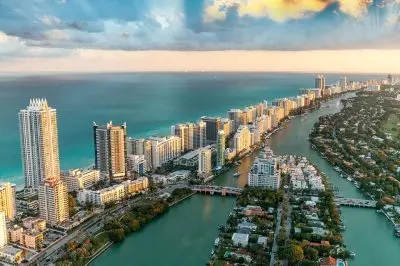 Florida is on its way to join the family of states with legal sports betting as Governor Ronald DeSantis is on the verge of reaching an agreement for a major gambling compact with the Seminole tribe. Discussions about the agreement have been continuing over the past several months. The Governor recently decided to personally step in and speed up the negotiations.
Florida is on its way to join the family of states with legal sports betting as Governor Ronald DeSantis is on the verge of reaching an agreement for a major gambling compact with the Seminole tribe. Discussions about the agreement have been continuing over the past several months. The Governor recently decided to personally step in and speed up the negotiations.
The Governor’s representatives and the Seminole leaders are now in the process of working out the final details on the agreement, sources close to the talks reveal. If everything goes according to plan, the Seminoles would start offering sports betting at their landbased casinos, including their Tampa and Hollywood Hard Rock properties.
Wagering on the outcome of sporting events would also become available at state racetracks and poker rooms. The Seminoles would share the revenue with pari-mutuel operators in the state. The new agreement would also enable the tribe to expand the range of gambling products it offers in its casino properties.
A decade or so ago, the tribal nation received approval from the state to operate slot machines and blackjack tables on their reservation’s territory. In 2019, the tribe ceased paying Florida due to disagreements about how the state regulated racetracks where limited forms of gambling were also available. The new deal would allow the tribal operators to expand their offering by adding chance games like craps and roulette, similarly to Las Vegas casinos.
The Seminoles Would Pay $500 Million Annually to the State
 Pari-mutuels play an important role in the negotiations since they have been operating across Florida for several decades. The revenue-splitting agreement between the tribe and the pari-mutuel operators would have a validity of thirty years. The Seminoles would retain 40% of the sports wagering revenue, while pari-mutuel operators get to keep the remaining 60%.
Pari-mutuels play an important role in the negotiations since they have been operating across Florida for several decades. The revenue-splitting agreement between the tribe and the pari-mutuel operators would have a validity of thirty years. The Seminoles would retain 40% of the sports wagering revenue, while pari-mutuel operators get to keep the remaining 60%.
Under the terms of the negotiated compact, the Seminoles would have to make annual payments of at least $500 million to the Sunshine State over the following five years. As many as 10% of the pari-mutuels’ net profits would go toward the state coffers. The tribe would have to contribute 13.75% of its own net profits from sports wagering in the form of taxes.
If the Seminoles fail to contract with three pari-mutuels, the taxes on their sports betting revenue would jump by 2%. The tribe and the pari-mutuel operators would have three months after sports wagering launches to reach a contract agreement. Sources outside the DeSantis office claim that the compact agreement would require the Seminoles to contract with an unlimited number of pari-mutuel operators.
Florida is the third most populated state in the US. Additionally, it is a major travel destination that attracts millions of tourists each year. It makes sense punters, professional leagues, and pari-mutuel operators alike have all been eagerly awaiting the arrival of legal sports betting in the Sunshine State.
Betting proponents have been trying to bring legal sports wagering to Florida for quite some time now. Richard Scott, who preceded Governor DeSantis, attempted to negotiate a broader gambling compact on multiple occasions but hit a snag each time. Current Senate President Wilton Simpsons started negotiating with the Seminoles earlier this year. Governor DeSantis eventually took the lead to personally bring the negotiations to a favorable conclusion.